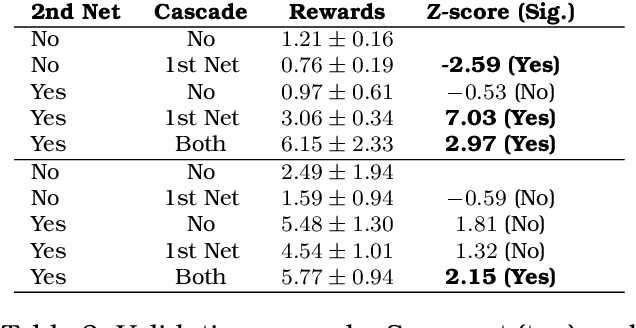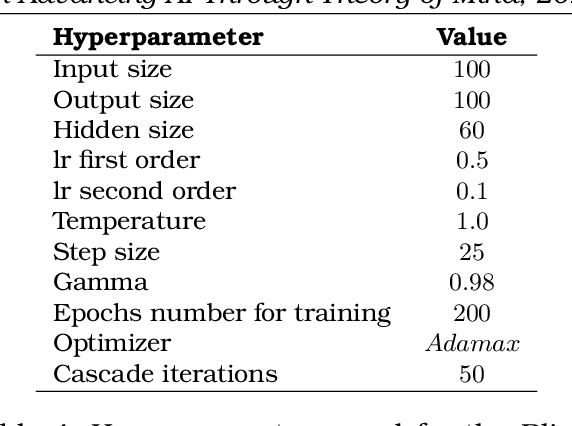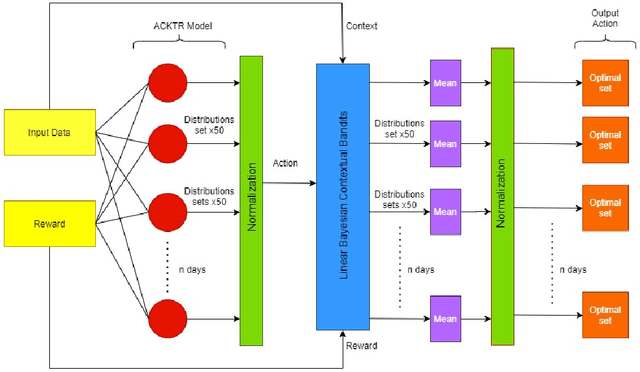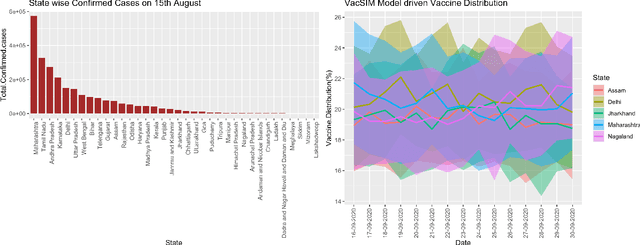Raghav Awasthi
Proceedings of 1st Workshop on Advancing Artificial Intelligence through Theory of Mind
Apr 28, 2025



Abstract:This volume includes a selection of papers presented at the Workshop on Advancing Artificial Intelligence through Theory of Mind held at AAAI 2025 in Philadelphia US on 3rd March 2025. The purpose of this volume is to provide an open access and curated anthology for the ToM and AI research community.
Learning Explainable Interventions to Mitigate HIV Transmission in Sex Workers Across Five States in India
Nov 30, 2020
Abstract:Female sex workers(FSWs) are one of the most vulnerable and stigmatized groups in society. As a result, they often suffer from a lack of quality access to care. Grassroot organizations engaged in improving health services are often faced with the challenge of improving the effectiveness of interventions due to complex influences. This work combines structure learning, discriminative modeling, and grass-root level expertise of designing interventions across five different Indian states to discover the influence of non-obvious factors for improving safe-sex practices in FSWs. A bootstrapped, ensemble-averaged Bayesian Network structure was learned to quantify the factors that could maximize condom usage as revealed from the model. A discriminative model was then constructed using XgBoost and random forest in order to predict condom use behavior The best model achieved 83% sensitivity, 99% specificity, and 99% area under the precision-recall curve for the prediction. Both generative and discriminative modeling approaches revealed that financial literacy training was the primary influence and predictor of condom use in FSWs. These insights have led to a currently ongoing field trial for assessing the real-world utility of this approach. Our work highlights the potential of explainable models for transparent discovery and prioritization of anti-HIV interventions in female sex workers in a resource-limited setting.
VacSIM: Learning Effective Strategies for COVID-19 Vaccine Distribution using Reinforcement Learning
Sep 14, 2020



Abstract:A COVID-19 vaccine is our best bet for mitigating the ongoing onslaught of the pandemic. However, vaccine is also expected to be a limited resource. An optimal allocation strategy, especially in countries with access inequities and a temporal separation of hot-spots might be an effective way of halting the disease spread. We approach this problem by proposing a novel pipeline VacSIM that dovetails Actor-Critic using Kronecker-Factored Trust Region (ACKTR) model into a Contextual Bandits approach for optimizing the distribution of COVID-19 vaccine. Whereas the ACKTR model suggests better actions and rewards, Contextual Bandits allow online modifications that may need to be implemented on a day-to-day basis in the real world scenario. We evaluate this framework against a naive allocation approach of distributing vaccine proportional to the incidence of COVID-19 cases in five different States across India and demonstrate up to 100,000 additional lives potentially saved and a five-fold increase in the efficacy of limiting the spread over a period of 30 days through the VacSIM approach. We also propose novel evaluation strategies including a standard compartmental model based projections and a causality preserving evaluation of our model. Finally, we contribute a new Open-AI environment meant for the vaccine distribution scenario, and open-source VacSIM for wide testing and applications across the globe.
 Add to Chrome
Add to Chrome Add to Firefox
Add to Firefox Add to Edge
Add to Edge